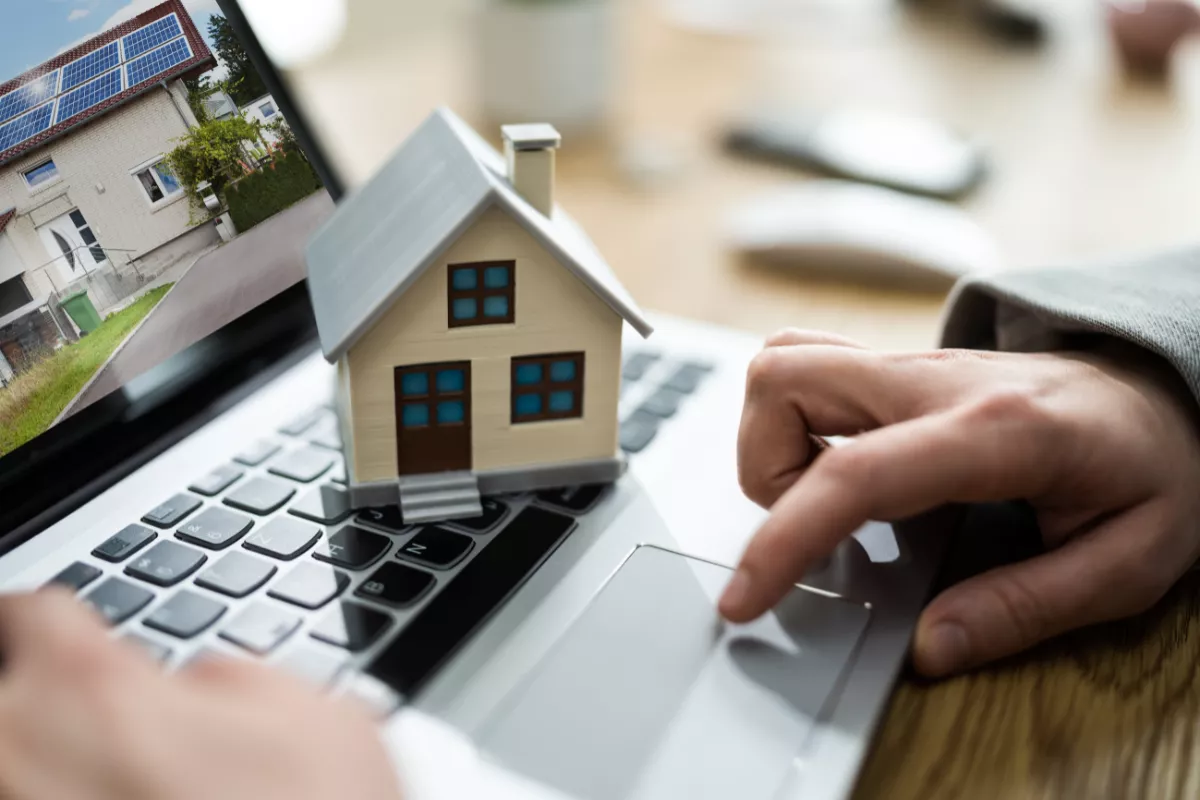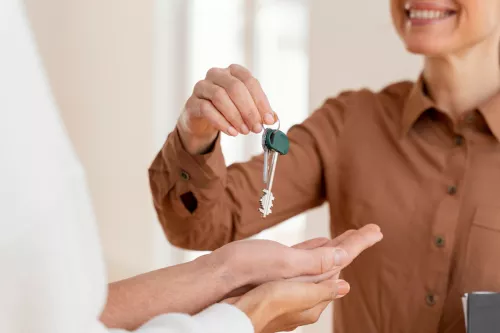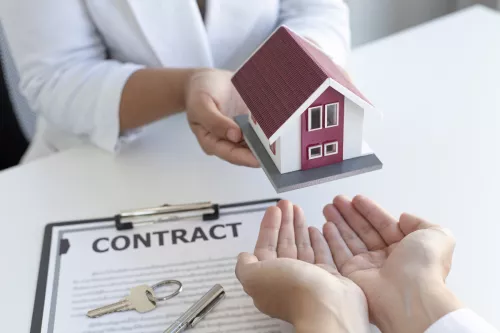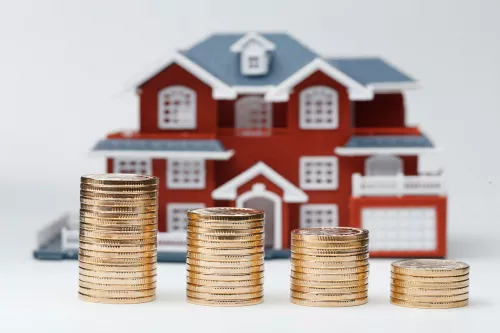Deciding to sell your home and embark on a new chapter can stem from various reasons—whether it's a job change, a desire to be closer to family like grandchildren, or the need for more suitable space for a home office and outdoor living.
Venturing into the real estate market as a seller brings new challenges and can seem overwhelming, particularly if you're not well-versed in the process. Selling your home not only involves emotional decisions, as you part with cherished memories, but also practical ones, such as conducting profitable sales and enhancing your home’s value.
You may need to manage repairs, address lingering odors or damage, and declutter spaces filled over an average decade of living. We aim to simplify your selling journey by exploring various selling methods, providing a comprehensive step-by-step guide, and answering common questions to help you navigate this complex process effectively and informatively.
Different Methods to Sell a House
When it comes time to sell your house, choosing the right method can greatly influence your experience and the outcome. Here's a deeper look into the different ways to sell a house, each offering unique benefits and challenges:
Traditional Real Estate Agent
The most conventional route is through a real estate agent. Agents leverage their expertise to handle various aspects of the sales process such as listing, marketing, showcasing the property, and negotiating with potential buyers.
They can also provide valuable insights on market trends and pricing strategies. However, this service comes at a cost: agents typically charge a commission that ranges from 5-6% of the sale price. Despite this expense, their experience and network often justify the cost for many sellers.
For Sale By Owner (FSBO)
Opting to sell your home yourself, known as FSBO, allows you to avoid paying agent commissions, which can translate into substantial savings. This approach requires you to manage all aspects of the sale process, including marketing, scheduling showings, negotiation, and handling the complex paperwork and legal requirements.
FSBO demands a considerable investment of time and effort, and it benefits sellers who have real estate knowledge or who are particularly market-savvy.
Real Estate Investors
If speed is a priority, selling directly to a real estate investor or a home-buying company might be suitable. These buyers often look for properties they can buy quickly and resell for a profit. This method can facilitate a fast sale, often within days, and is particularly useful if the property is distressed or if the seller needs to move rapidly.
The trade-off is that the offer you receive will likely be below market value, reflecting the investor’s need for profitability.
Auction
Auctioning your home can create a competitive bidding environment that potentially drives the sale price higher than expected. This method works well for unique properties that can attract a lot of interest or for sellers looking to dispose of a property quickly. However, auctions are unpredictable and may also result in a sale price lower than the market value if there isn't enough interest generated.
iBuyers
Technology-driven companies known as iBuyers offer to purchase homes quickly and without the need for traditional listings. iBuyers use automated valuation models (AVMs) to determine the offer price. This method is highly convenient and fast, often closing in a matter of days without the need for showings, staging, or prolonged negotiations.
However, the tradeoff is that the offer may be lower than what might be obtained on the open market, as these companies often aim to subsequently sell the homes for a profit.
Most Profitable Way to Sell Your House
Maximizing profitability when selling your home involves a combination of strategic decisions and investments in the property. Here are more detailed insights into how to achieve the most profitable sale:
Market Timing
Understanding the local real estate market conditions is crucial. Selling during a seller's market, when demand outstrips supply, can significantly boost your chances of receiving higher offers. Conversely, during a buyer's market, where the inventory of homes exceeds the number of buyers, prices can be driven down.
Keep an eye on market trends, including interest rates and economic indicators, to choose the best time to sell.
Professional Staging
Staging a home professionally can make a substantial difference. This involves arranging furniture and decor to showcase your home's potential, helping buyers envision living in the space.
Statistics show that staged homes not only sell faster but also tend to close at higher prices compared to non-staged ones. Consider hiring a professional stager who can optimize the space and appeal of your home to attract a broader audience.
Strategic Upgrades
Investing in the right upgrades can significantly increase the value of your home. Focus on renovations known to offer a good return on investment (ROI):
- Kitchen Remodels: Modern, updated kitchens are a key selling point for many buyers. You don't need a full remodel; even minor updates like new countertops or cabinetry can uplift the space.
- Bathroom Updates: Similarly, refreshing a bathroom can be beneficial. New fixtures, fresh paint, and updated lighting can transform these essential spaces.
- Energy Efficiency Improvements: Enhancing your home’s energy efficiency with better insulation, high-efficiency windows, and modern HVAC systems not only appeals to environmentally conscious buyers but can also reduce future living costs, making your home more attractive.
Curb Appeal Enhancements
Never underestimate the power of first impressions. Improving your home's exterior and landscaping can attract more buyers and potentially increase the sale price. Simple changes like painting the front door, replacing old fixtures, and ensuring the garden is tidy can make a significant impact.
Pricing Strategy
Setting the right price is key. Price too high, and you may deter potential buyers, leading to a longer time on the market that could necessitate price reductions; too low, and you might miss out on potential profits. A comparative market analysis (CMA) can help determine a competitive selling price based on similar, recently sold homes in your area.
Marketing and Photography
High-quality, professional photos are a must for attracting online shoppers who might be screening dozens of homes on their devices. Well-composed photos can highlight your home's strengths and attract more interest, leading to more offers.
Step-by-Step Guide to Selling a House
Selling a house involves several detailed steps, each critical to the success of the transaction. Here’s an expanded step-by-step guide to help you navigate through the process smoothly:
Preparation
This initial step sets the tone for the entire selling process. Start by conducting a thorough assessment of your property to identify any issues that might deter buyers or affect the value. Make necessary repairs, such as fixing leaky faucets, repairing broken tiles, or patching holes in walls. It's also beneficial to declutter and deep clean the entire house to make it appear more spacious and inviting.
Consider hiring a professional stager to optimize the layout and decor of your home, which can help potential buyers visualize themselves living in the space and potentially lead to higher offers.
Pricing
Setting the right price is crucial and can determine how quickly your home sells. Price too high and your home might sit on the market; too low and you might lose out on potential profits.
Conduct a comparative market analysis (CMA) by reviewing the prices of homes that have recently sold in your area and are similar to yours in size, condition, and features. You may also want to hire a professional appraiser to get an unbiased opinion of your home’s market value.
Marketing
Effective marketing can significantly speed up the sale of your home. List your property on multiple platforms, including online real estate listing sites, social media platforms, and local classifieds to reach a wide audience.
Professional photos are crucial; they should highlight your home's best features and be taken in good lighting. Consider creating a virtual tour or video of your home, which can enhance your online listings. Hosting open houses can also attract more potential buyers and generate interest quickly.
Negotiation
Once offers start coming in, it's time to review them carefully. Consider not only the offer price but also other factors such as the buyer’s financing, contingencies, and proposed closing dates.
You might need to negotiate on price, closing costs, or the terms of the sale. It’s often helpful to have a real estate agent or attorney during this phase to handle negotiations professionally and ensure your interests are protected.
Closing
The final step in selling your house is the closing process, which involves several legal and financial transactions. You’ll need to work with a title company to ensure that the title to your property is clear and to manage the transfer of funds.
This phase includes the buyer conducting a final walk-through, completing a home inspection, and getting the home appraised if they are obtaining a mortgage. All remaining paperwork, which can include the deed and mortgage documents, will be signed at this time. Once everything is processed, and all agreements are met, the sale is completed, and the keys are handed over to the buyer.
What Sells a House the Most?
When selling a house, some factors significantly impact how quickly it sells and at what price. Here's a deeper look into the key factors that contribute to a successful sale:
Location
The adage "location, location, location" holds true in real estate. Homes in desirable locations often sell faster and for higher prices. Factors that enhance a neighborhood's desirability include good schools, proximity to amenities like parks, shopping centers, and restaurants, easy access to major highways and public transportation, and low crime rates.
Scenic views, quiet streets, and unique community features also add appeal. Properties in these areas attract more interest, leading to quicker sales often at competitive prices.
Condition
The physical condition of a property plays a critical role in its saleability. Homes that are well-maintained and move-in ready typically appeal more to buyers because they require less work and expense after purchase. Important elements include modern, functional kitchens and bathrooms, efficient heating and cooling systems, and intact roofs and foundations.
Cosmetic aspects, such as fresh paint, clean floors, and manicured lawns, also make a strong first impression. Investing in key repairs and simple upgrades can significantly enhance a home's marketability.
Price
Pricing a home appropriately is crucial. Homes priced too high may linger on the market, leading potential buyers to suspect there might be something wrong with the property. Conversely, homes priced too low might sell quickly but won't yield the best return.
Setting the right price involves analyzing comparable homes that have sold recently in the same neighborhood, considering the current market trends, and adjusting for unique features or upgrades in the home.
Marketing
Effective marketing can dramatically affect how quickly a home sells. This includes high-quality, professional photos that showcase the home's best features, engaging and detailed listing descriptions, and utilizing a variety of channels to reach potential buyers, such as online real estate platforms, social media, and traditional print media. Open houses and private showings also play a crucial role, as they give buyers a firsthand look at the property.
Staging
Staging a home can make a significant difference. By arranging furniture and decor in a way that highlights the property's strengths and downplays its weaknesses, staging helps buyers imagine themselves living in the space. Well-staged homes often sell faster and for more money because they create a more appealing and move-in-ready appearance.
Flexibility
Being flexible with showings and negotiations can also facilitate a quicker sale. Allowing potential buyers easy access to view the property and being open to negotiate terms can make the difference between a sale and a pass, especially in competitive markets.
What Does Not Add Value to a Home?
When considering a renovation, many homeowners weigh whether it will enhance their home's resale value. However, not all improvements offer a significant return on investment (ROI), with extensive landscaping, swimming pools, and home theaters among those with the least financial benefits. Let’s discuss some improvements that might not be worthed:
Highly Personalized Renovations
Highly personalized renovations, while satisfying personal preferences, can negatively impact resale value as they may not appeal to the general market. Features such as specialized room conversions or unique decor choices might suit the current homeowner's lifestyle but could be seen as burdensome by potential buyers, who may factor in the cost of reversing these modifications.
Generally, renovations that have a broad appeal, like updating kitchens and bathrooms or improving energy efficiency, tend to offer a better return on investment.
Luxury Upgrades
Incorporating luxury features such as steam showers or radiant floor heating into your home primarily enhances your personal living experience rather than increasing its market value.
While these additions can significantly improve your enjoyment of your home (and you might find the investment worthwhile), they generally do not boost the resale value since they are not considered essential by most prospective buyers.
Extensive Landscaping
Landscaping plays a crucial role in enhancing curb appeal, which can assist in selling your home. However, it's important to exercise caution when investing heavily in specialized lawn and garden enhancements. Landscaping preferences can be highly personal.
While you might derive great enjoyment from these improvements, potential buyers might not find them appealing and could view the maintenance costs as a drawback.
People also ask
How long does it take to sell a house?
It varies by market, but on average, it takes about 65-93 days from listing to closing.
Should I sell my house before buying a new one?
It depends on your financial situation and the market. Selling first might make financial sense and reduce stress, but it could also mean needing temporary housing.
Are there any hidden costs when selling a house?
Yes, be prepared for costs like agent commissions, closing fees, and possibly capital gains tax.

 Marcio Vasconcelos
Marcio Vasconcelos





